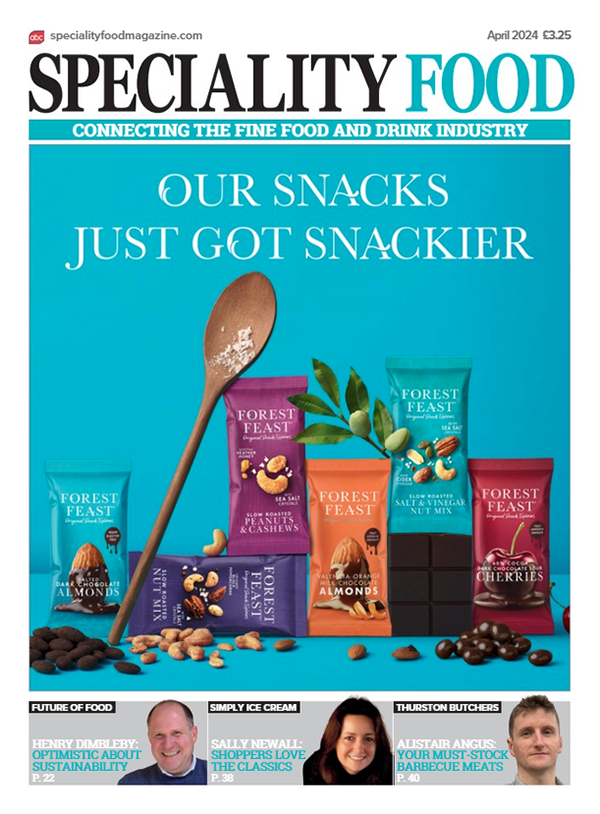“An allergic reaction”

- It’s time to go left field rather than safety-first
- “Fashion or for keeps?”
- “New year and new possibilities”
- “What is in a name?”
- “The art of shopping”
It’s true to say that this year Sunday 14th December has crept up on us. Bright leaflets about the new food labelling laws (the Food Information for Consumers Regulations) have been around since the summer but it’s a pound to a thimble full of rat droppings that many “small and medium food businesses” have been busy getting on with the business of survival and haven’t read the Food Standards Agency 16-pager
For a large number of small businesses, 14th December marks the start of a whole heap of extra work. Nobody would claim that allergic reactions to food are a trivial matter, indeed in some cases they are life-threatening, but the solution enshrined in EU law places an onerous burden on businesses that may already be stumbling. In essence (and you’d better get your own copy of the booklet via www.food.gov.uk)
anyone who sells ‘loose food’ must know whether it contains one or more of the 14 listed allergens.
If you buy in a packet of buns the responsibility for allergen labelling passes to whoever packed them, but if you make those buns for sale ‘loose’ in your shop, the label must include specific allergen information. Which means that even the smallest restaurants must list the allergens found in the dishes sold. The 14 allergens make interesting reading – lupin flour may not feature in many recipes but the others are all familiar: celery; cereals containing gluten (wheat, rye, barley, oats), crustaceans, eggs, fish, milk (yup! that includes butter, yogurt and cheese); mustard; nuts; peanuts; sesame seeds; soya and sulphur dioxide.
Retailers also need to put up a notice along the lines of ‘Food Allergies and Intolerances: before ordering please speak to our staff about your requirements’ and that will mean training all your staff so that they know exactly what goes in what. If you run a small restaurant or café, the menu should itemise any allergens in each dish. So an egg sandwich needs a printed note “Contains egg, wheat, soy and milk”; or a tuna salad needs to specify “Contains fish, celery and mustard”. And always the responsibility for researching and providing this information lies with whoever sells the ‘loose food’.
Providing information to help people avoid foods that make them ill sounds like a pretty good idea, but this seems like a cumbersome way of going about it. The booklet claims that it is aimed at small and medium food business, but they are the businesses that are less likely to cope with a wave of extra work and extra record keeping. Medium to large restaurant chains or food producers will grumble a bit but they have the systems in place to comply with these new regulations. Smaller businesses just do not have the spare capacity to comply with the red tape. There is also the question of how the list of fourteen allergies was drawn up.
We are all increasingly aware of gluten intolerance but a good many commentators (myself included) will have scurried to the internet to find out just how big a role lupin flour plays in the national diet. My niece has a food intolerance, she reacts alarmingly to the tiniest amount of paprika – which is increasingly difficult as it used as a ‘natural’ colouring in many pre-prepared foods and sauces. The new regulations won’t help her at all as paprika is not one of the chosen 14, and she will go on asking questions of waiters and reading the ingredients list small print on back labels. Is it fair to shift the responsibility from the allergen sufferers – who may be managing their condition successfully – to the small and medium food businesses who must serve everyone?
more from Fine Food
-
“The Joy of Lists”
11 September 2019 Fine FoodSo how was your summer? Time to savour traditional seasonal attractions… Sunny Glastonbury… Cricket’s World Cup. -
“Jellyfish”
02 September 2019 Fine FoodThe thoughtful diner’s watchword is that “you cannot have anything better than exactly what you want.” -
“A pinch of flavour”
18 July 2019 Fine FoodIt’s as if two teams of research scientists have gone to war… firstly there are the white-coated folk who champion new products and try to find the next wonder food, while at the other extreme laboratories start by listing the dire…





